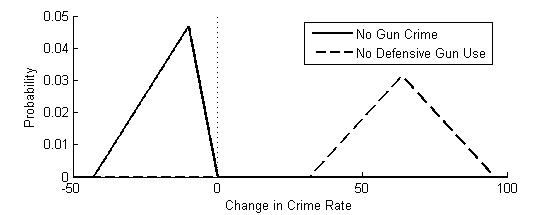In my last post I asked you to examine the scripts that have been challenged by this election. By now you’ve done this and have a nice, relaxed, open mind. (Right?)
OK, so T***p won the election. Now what?
I’ m in the camp that thinks the situation is potentially precarious. The Republicans control the presidency and Congress. If they manage to get out of their own way, they’ll be able to move policy far in a direction we don’t prefer. Personally, I’m most stupefied that climate deniers now control all levers of policy. I expect a snowball love-fest in Washington, D.C. There are many, many more policy implications, but this isn’t the time or place to list them.
Possibly of greatest concern are the racism, xenophobia, and sexism on display during the campaign. Perhaps T***p is actually much more tolerant than people say (like is argued here). Perhaps lots of what he said on the campaign trail was the hyperbolic talk of a New Yorker who doesn’t mean it literally. He might govern as a reasonable, practical man, who I might disagree with but who I can nonetheless respect.
I’m not holding my breath. The Financial Times puts it nicely “it is worth bearing in mind that when narcissists and demagogues with illiberal attitudes gain significant power, they usually become more, not less, unrestrained and therefore more dangerous.” For now, the burden of proof is on him. Barring any proof otherwise, I’ll take him at his word for all the promises of his campaign, like his promise to deport about 1% of the U.S. population (3 million undocumented immigrants – most of them druggies, criminals, and rapists, of course).
But my concern goes beyond T***p to the forces he unleashed. T***p has given voice and power to some dangerous forces. Read the comments on Breitbart! Holy shitballs! And remember that Steve Bannon, the architect of this online forum, is now his chief strategist. This is major leverage for what in terms of numbers should be a fringe organization.
Social forces, once mobilized, can prove tricky to control. Social tipping points are impossible to predict and we best stay away from this one. Hopefully the system of checks and balances works as expected and this is nothing more than the usual ebb and flow between parties. This is the most probable outcome. But my eyes are open and my caution level is up a couple of notches. Neither moderation nor violent excess will surprise me. Other darker outcomes are possible and we shouldn’t be caught flat footed.
(It bears mention that some positives could come from this election. It’s possible that T***p’s isolationism will lead to fewer “humanitarian” military interventions. Better relations with Russia could be a stabilizing force. And in an ideal world T***p would actually help the people he promised to help, which would reverse decades of working class and rural communities getting the shaft from neo-liberal economic policies. Perhaps a little protectionism may not be all that bad. It’s not just me saying this; Bernie Sanders has outlined a number of T***p’s promises that he can support.)
But back to the negatives. What we need now is effective organizing and effective action to counter the policy and cultural implications of this election – both the unearthed realities that were there the whole time and the new possibilities opened up by the newly empowered forces. Effective action requires winning the hearts and minds of the middle of the electorate that swung T***p’s way. Rhetorical question here: which do you think will be more effective? Lashing out at an evil, uneducated basket of deplorables? Or understanding T***p supporters and appealing to their interests and motivations? No, I don’t think we can be one big, happy, kumbaya family. That’s silly. I’m arguing that any amount of persuasion requires understanding and appealing to the person you’re trying to persuade. Do you want to change hearts, minds, and policy? Or do you just want to vent your frustrations and find someone to blame?
Here, then, is my suggestion: Pity and anger will get us nowhere. Accept defeat, lick your wounds, shake it off, and get back in the fight.
I’m reminded of a verse by Octavia Butler in Parable of the Sower:
In order to rise from its own ashes
a Phoenix first must burn
We have a great opportunity here – a once in a generation opportunity. The established political order has been shattered on both sides of the aisle. There is a vacuum opening up and we need to fill it. But we need to do it right. This starts by dismantling our poor understanding of our fellow Americans. We need to let go of our misplaced sense of superiority (“uneducated” should be a statement of fact, not a judgement ). We need to learn to talk to people. Can you go into every interaction aiming to learn from others? Can you be the example of tolerance that you say you value? Can you seek to understand those who have unleashed T***p on the world? Can you drink a Bud Light without a sense of irony?
(But stay away from Swastika-carrying, neo-Nazi insanos, of course. Fuck them. But I promise that your neighbor who voted for T***p probably isn’t one of them. Then again, your neighbor may be an off-duty cop taunting people with a confederate flag. Major jerk, for sure, but I’d still be willing to bet this guy is an exception.)
So, like Tyler Durden in Fight Club, I’m now leaving you with a homework assignment: find a local T***p supporter and make conversation. Doesn’t have to be about politics, but it does have to be genuine. Don’t argue for anything. Listen, and try to like the person. Report back here on how it goes. Should be interesting.
Do this enough and you might start gaining proper understanding. This will lead to good strategy and effective action. Win enough hearts and minds and you may just manage to nudge things ever so slightly toward the world you want to see.
Godspeed.



